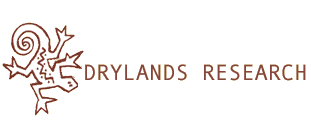
Drylands Research Working Paper 35
Abstract
This paper explores the complex interaction between the process of agricultural production in the rural areas surrounding the city of Kano on the one hand, and the institutions and activities of the state on the other. The emphasis is not only on the policies of the state, but also on its institutional and procedural changes over the period 1900 to 2000. Over the 100 years in question, agricultural producers were subjected to direct political and economic pressures emanating from the institutional design and the programmatic activities of the state in its pre-colonial, colonial, and post-colonial formats. The state also imposed indirect effects on the agrarian system through its attitude to the market and the promotion of economic specialization. While some of the states effects were largely extractive in their orientation to the rural areas, others sought to reshape the conditions of agrarian production for improved productivity. In tracking these processes, the central concern is to map out the forces that have shaped the contemporary realities of the region. Specific aspects of colonial economic history explored include the development of colonial science and developmentalism, the role of marketing boards, and the attempt at a capitalist transformation of Nigerian agriculture by the post-colonial state. Finally, the paper draws attention to the policy legacies of colonial developmentalism within the post-colonial state system.
?